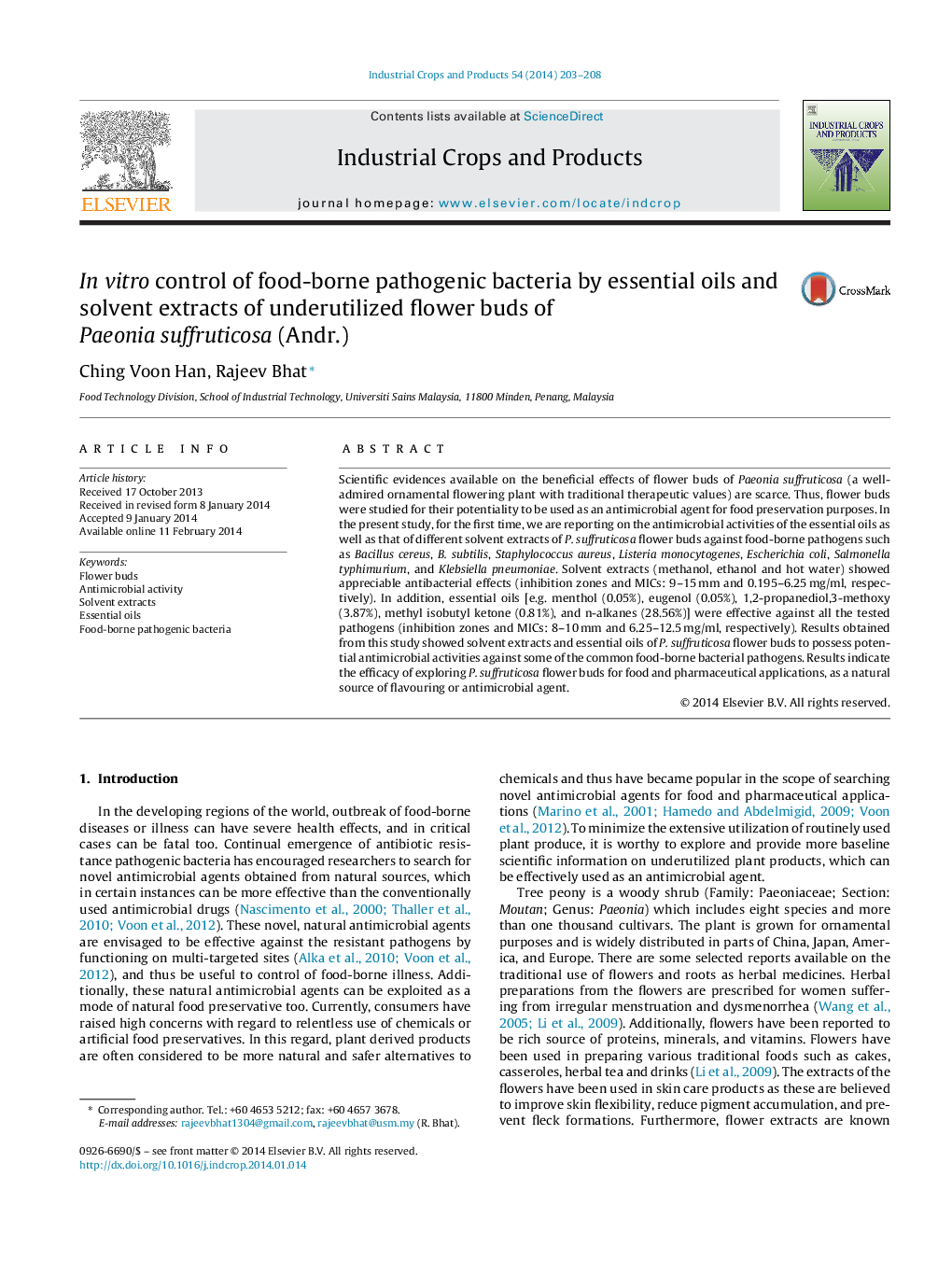| Article ID | Journal | Published Year | Pages | File Type |
|---|---|---|---|---|
| 4513365 | Industrial Crops and Products | 2014 | 6 Pages |
•No research is reported on antimicrobial potential of Paeonia suffruticosa flowers.•Essential oils and solvent extracts were effective against food-borne pathogens.•A vital database is generated for potential use in food or pharmaceutical industries.
Scientific evidences available on the beneficial effects of flower buds of Paeonia suffruticosa (a well-admired ornamental flowering plant with traditional therapeutic values) are scarce. Thus, flower buds were studied for their potentiality to be used as an antimicrobial agent for food preservation purposes. In the present study, for the first time, we are reporting on the antimicrobial activities of the essential oils as well as that of different solvent extracts of P. suffruticosa flower buds against food-borne pathogens such as Bacillus cereus, B. subtilis, Staphylococcus aureus, Listeria monocytogenes, Escherichia coli, Salmonella typhimurium, and Klebsiella pneumoniae. Solvent extracts (methanol, ethanol and hot water) showed appreciable antibacterial effects (inhibition zones and MICs: 9–15 mm and 0.195–6.25 mg/ml, respectively). In addition, essential oils [e.g. menthol (0.05%), eugenol (0.05%), 1,2-propanediol,3-methoxy (3.87%), methyl isobutyl ketone (0.81%), and n-alkanes (28.56%)] were effective against all the tested pathogens (inhibition zones and MICs: 8–10 mm and 6.25–12.5 mg/ml, respectively). Results obtained from this study showed solvent extracts and essential oils of P. suffruticosa flower buds to possess potential antimicrobial activities against some of the common food-borne bacterial pathogens. Results indicate the efficacy of exploring P. suffruticosa flower buds for food and pharmaceutical applications, as a natural source of flavouring or antimicrobial agent.
